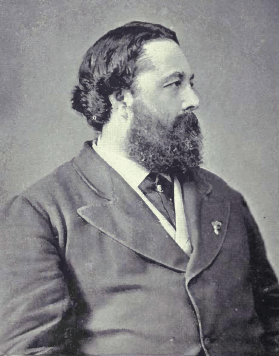Thomas Sterry Hunt facts for kids
Quick facts for kids
Thomas Sterry Hunt
|
|
|---|---|
 |
|
| Born | September 5, 1826 |
| Died | February 12, 1892 (aged 65) |
| Occupation | Geologist, chemist |
| Signature | |
 |
|
Thomas Sterry Hunt (September 5, 1826 – February 12, 1892) was an American geologist and chemist. He made important discoveries about rocks, minerals, and even how our planet's climate changes.
Contents
Thomas Hunt's Early Life and Career
Thomas Hunt was born in Norwich, Connecticut. When he was 12, his father passed away, and Thomas had to start working to support himself. Over a couple of years, he worked in a printing office, a pharmacy, a book store, and as a clerk.
He became very interested in science, especially chemistry and medicine. In 1845, he joined a group called the Association of American Geologists and Naturalists at Yale University. This group later became the American Association for the Advancement of Science.
Hunt's Work in Geology and Chemistry
In 1848, Thomas Hunt gave a presentation in Philadelphia about acid springs and gypsum deposits. At Yale, he became an assistant to Benjamin Silliman Jr.. In 1846, he was chosen to be the chemist for the Geological Survey of Vermont.
A year later, in 1847, he took on similar duties for the Canadian Geological Survey in Montreal. He worked there under Sir William Logan until 1872. While in Canada, Hunt studied different types of rocks, mineral deposits, and oil resources.
Discovering Oil in Canada
In 1849-1850, Hunt studied a large sample of bitumen (a type of tar) from Enniskillen Township. He found it could be used to make asphalt, seal ships, or even create gas for lights. Hunt's report drew attention to the bitumen in Southwestern Ontario. This helped start the first oil rush in Enniskillen Township.
In December 1860, Hunt visited the Enniskillen oil fields. He reported that James Miller Williams and other business people had dug over 100 oil wells. They had collected hundreds of thousands of gallons of oil. After his work in Canada, Hunt became a professor of geology at the Massachusetts Institute of Technology.
Inventing "Greenback" Ink
In 1857, while teaching at Université Laval, Hunt invented a special kind of ink. He created it to help fight against fake money. This ink ended up being used on many bank notes, including the US government's money during the Civil War. This is where the term "Greenback (1860s money)" comes from.
Honors and Contributions
Thomas Hunt received many honors for his scientific work.
- In 1859, he became a fellow of the Royal Society.
- He was one of the first members and later president of the Royal Society of Canada.
- In 1861, he joined the American Philosophical Society.
- He received special honors from France (the Legion of Honor) and a special degree from the University of Cambridge.
He often wrote for science magazines about topics like limestone rocks, how continents formed, and the chemistry of the early Earth. He also wrote an important essay about the names of rock layers called Cambrian and Silurian. In 1873, Hunt was elected a member of the National Academy of Sciences.
Early Ideas on Climate Change
Thomas Hunt built on the work of John Tyndall about greenhouse gases. In 1863, he was one of the first to suggest that climate change over long periods was linked to the amount of carbon dioxide in the atmosphere. He shared this idea in the American Journal of Science and Arts. He talked about it again in 1878 at a meeting for the British Society for the Advancement of Science. This was well before Svante Arrhenius developed the full theory of the greenhouse effect.
Hunt later thought that the high levels of carbon dioxide in the past came from space, not from volcanoes.
Thomas Sterry Hunt passed away in New York City on February 12, 1892. A special nature area in Quebec, Canada, called the Thomas-Sterry-Hunt International Ecological Reserve, was named after him in 1988.
Organizations He Led
Thomas Sterry Hunt was president of several important scientific groups:
- American Association for the Advancement of Science (1870)
- American Institute of Mining Engineers (1876)
- American Chemical Society (1879 and 1888)
- Royal Society of Canada (1884)
His Family Life
In January 1878, Thomas Sterry Hunt married Anna Rebecca Gale. Anna was born and grew up in Montreal, Quebec. After her father passed away in 1865, she and her two sisters traveled a lot in Europe.
Thomas and Anna moved to Boston and continued to travel widely, both before and after his death in 1892. Anna Hunt was good at languages and wrote several books of poems.
Images for kids
 | Precious Adams |
 | Lauren Anderson |
 | Janet Collins |


